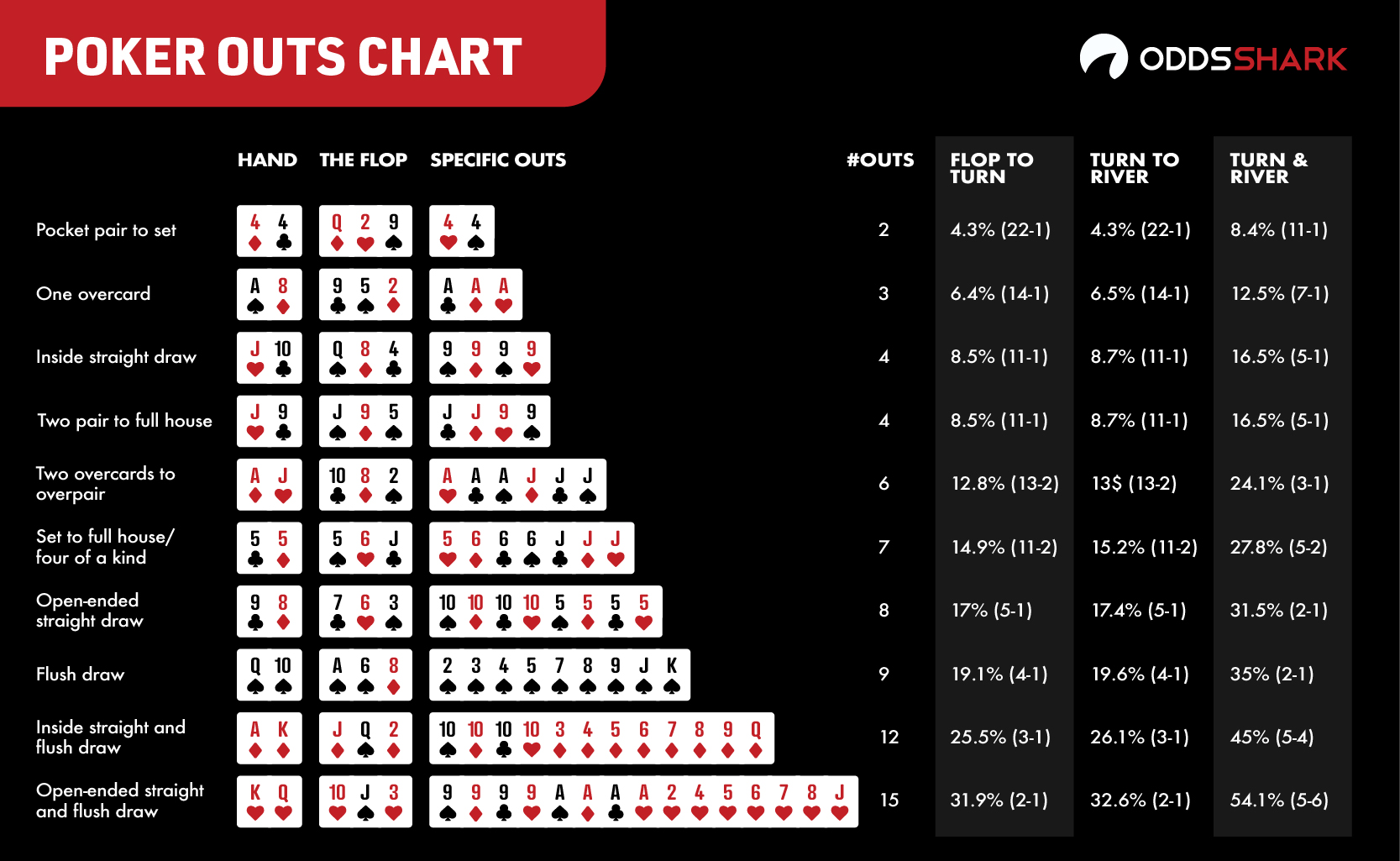Poker is — in large part — a numbers game.
Mathematically-inclined players, who can work comfortably with odds, percentages and probability, are in a much stronger position from the outset to succeed in poker — almost regardless of the version they play. While other factors do come to bear on your decision-making, math a fundamental skill that poker players need to succeed in the long term.
Luck will always play a role in a card game but a strong grasp of mathematics can help players ride out a rough patch of variance.
Making mathematically sound decisions can help inform both your short and long-term strategy. Fortunately you don’t have to be a math genius to beat people at poker but it certainly helps to at least get the basics correct from the start.
There are a few key math considerations to be aware of in any poker game.
Basic Probability
When it comes to poker and math there are some numbers that serve as the starting point for all math-based strategy.
Every deck has 52 cards, which are divided into four suits. That means there are 13 cards of each suit.
That means that the odds drawing one specific card are going to be one-in-52 (or 52-1 if you prefer). Obviously those are not good odds and you wouldn’t want to put a huge amount of money into a pot getting 52-1.
In No-Limit Hold’em, and all forms of poker, you generally want to get money in the middle when the odds are in your favor. To learn more you should check out our Basic Odds & Outs in Hold'em.
It’s important to know how exactly those situations look so we’ve included a cheat sheet to help you navigate some of the basic odds, match-ups and probabilities in poker:
| 331-1 | Odds of getting dealt ace-king of spades (or any specific suit) |
| 221-1 | Odds of getting dealt pocket aces |
| 118-1 | Odds of flopping a flush with suited hole cards |
| 81-1 | Odds of getting ace-king (including suited and non) |
| 74-1 | Odds of flopping a straight with connected cards J-T through 5-4 |
| 54-1 | Odds of suited cards (jacks or better) |
| 41-1 | Odds of getting one of the top five pairs (AA, KK, QQ, JJ, TT) |
| 24-1 | Odds of getting suited connectors |
| 16-1 | Odds of getting a pocket pair |
| 8-1 | Odds of hitting a set on the flop with a pocket pair |
| 5-1 | Odds of getting connected cards (consecutive rank like 3-2, 8-7, Q-J) |
| 3-1 | Odds of making a pair on the flop with any two cards |
Pot Odds Explained
Once you understand some of the basic odds behind poker you’ll want to take a learn another basic poker math concept: Pot odds.
Pot odds are basically a way of deciding whether you should call a bet.
For instance let’s say you’ve got a flush draw and you’re pretty convinced your opponent has pocket aces and there’s $90 in the pot.
There are nine cards in the deck that will complete your flush. That means you’ve got a roughly 20% chance to hit your flush on the turn (or 4-1). That’s actually OK, so long as you’re getting the right price to call.
Imagine your opponent makes a small bet of $10. You should definitely call. You’re only risking $10 to potentially win at least $100. It means you’re getting odds of 10-1. Suddenly your 4-1 odds for getting your flush to complete aren’t looking so bad.
Meanwhile imagine if your opponent instead fired $100 into the pot. That’s simply too much to risk on a flimsy flush draw. Of course that situation is based on your opponent having aces and the eventual flush being the actual best hand. There are plenty of other factors that go into a poker hand — for instance you could bluff on the turn or river — but it’s still important to take pot odds into consideration when contemplating a call.
It's All About Getting Max Value
Another way to think about pot odds is comparing it to a slot machine. It’s notoriously hard to hit a jackpot on the standard Vegas slot machine but those odds — which are generally 1-64 to hit a one-row jackpot — aren’t really the problem. The issue is that when you do hit, it doesn’t pay you a profitable amount.
Imagine if a slot machine where the min-bet is $1 paid out $10,000 for hitting a one-line jackpot. On average you’d spend $64 to win $10,000. That would be the busiest slot machine in Vegas!
There are some situations in poker where you’ll essentially be playing a broken slot machine if you utilize pot odds correctly.
Here's a look at some of the most common outs in poker:
